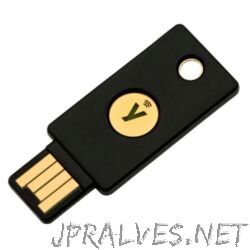Content for YubiKey

The YubiKey is a hardware authentication device manufactured by Yubico that supports one-time passwords, public-key encryption and authentication, and the Universal 2nd Factor (U2F) and FIDO2 protocols developed by the FIDO Alliance. It allows users to securely log into their accounts by emitting one-time passwords or using a FIDO-based public/private key pair generated by the device. YubiKey also allows for storing static passwords for use at sites that do not support one-time passwords. Facebook uses YubiKey for employee credentials, and Google supports it for both employees and users. Some password managers support YubiKey. Yubico also manufactures the Security Key, a device similar to the YubiKey, but focused on public-key authentication. The Yubikey implements the HMAC-based One-time Password Algorithm (HOTP) and the Time-based One-time Password Algorithm (TOTP), and identifies itself as a keyboard that delivers the one-time password over the USB HID protocol. The YubiKey NEO and YubiKey 4 include protocols such as OpenPGP card using 2048-bit RSA and elliptic curve cryptography (ECC) p256 and p384, Near Field Communication (NFC), and FIDO U2F. The YubiKey allows users to sign, encrypt and decrypt messages without exposing the private keys to the outside world. The 4th generation YubiKey launched on November 16, 2015. It has support for OpenPGP with 4096-bit RSA keys, and PKCS#11 support for PIV smart cards, a feature that allows for code signing of Docker images.

